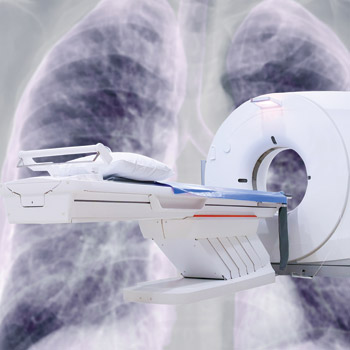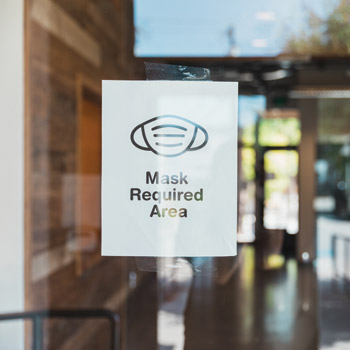40 years in health policy, then 40 days in the hospital
My time as a patient made me more aware, in a way that researching and writing about health policy can never do, that although my care experience was mostly positive, this is not the case for millions.
For more than 40 years I have been a health policy advocate, pushing for ACP's policies to put patients first. This summer and fall, I spent over 40 days in the hospital, including 30 days in the ICU, as I was treated for numerous and life-threatening complications from a ruptured appendix. What did I learn as a patient about health care policy, and ACP advocacy?
Allow me to start with the good news. I am doing very well now and have resumed working for ACP as Senior Vice President Emeritus for Governmental Affairs and Public Policy. Others I know who work in health policy and advocacy have reported how awful the system was when they became a patient. This is not my story. I am forever grateful to the physicians, nurses, aides, and physical and occupational therapists who kept me alive and restored my health; the health care system worked well for me.
But my experience also made me more aware, in a way that researching and writing about health policy can never do, that although my care experience was mostly positive, this is not the case for millions.
Affordability
My care for the most part was affordable, not so for many Americans.
I am fortunate that I have exceptionally good health insurance through ACP and Medicare Part A. My insurance is a national Blue Cross/Blue Shield Preferred Provider Organization (PPO) model with Medicare Part A as a secondary payer, accepted by almost all physicians, hospitals, and health care systems, including Johns Hopkins and its Sibley Memorial Hospital in Washington, D.C., where I received my care. While my bills are more than $600,000 and counting, out-of-pocket costs have been modest. I did get a surprise $3,000 bill for anesthesia services, of which my insurance paid about $700. The terms of the contract with the anesthesiologist did not allow them to collect more from me. I was required to spend considerable time working it all out.
My story is not shared by the millions of Americans without health insurance, or those who have plans with high deductibles and co-pays and/or narrow HMO networks of physicians and hospitals. They're at elevated risk of bankruptcy. They have been vulnerable to surprise bills for out-of-network care because of insurers that do not pay a fair rate and out-of-network physicians and hospitals that aggressively seek payment. The new No Surprises Act that went into effect in January may help, although its implementation is tilted toward insurers over physicians and hospitals when there is a dispute over the allowed payment.
I was fortunate that ACP offers its employees paid family and medical leave for qualifying events while most employers do not.
ACP has rightly championed universal coverage for all Americans, giving everyone access to public health insurance; limits on or elimination of high deductibles and co-pays for high-value care, especially for low-income persons and those with chronic illnesses; better network adequacy standards; and limits on surprise billing with a fair process for resolving disputes between the insurer and the billing clinician. (You can learn more about ACP's coverage recommendations from our 2020 position paper on coverage and cost, published Jan. 21, 2020, by Annals of Internal Medicine). The stalled Build Back Better bill had provisions supported by ACP to close the coverage gap in Medicaid nonexpansion states, supply paid family and medical leave, and lower cost sharing under the Affordable Care Act.
No one who is sick, as I was, should be faced with unaffordable health care and no choice but to take unpaid family and medical leave or lose their jobs. Other countries have achieved universal coverage with lower administrative spending and paid family and medical leave; why not us?
Health equity for undervalued support workers
Health care relies on people of color whose services are grossly undervalued. The people who cared for me on a daily basis were not physicians but nurses, aides, housekeepers, and physical and occupational therapists. I would say that 98% of them were people of color, with the overwhelming majority being Black women. They were compassionate and committed even as I heard some of them express frustration related to labor shortages that sometimes delayed our care.
Public policy involving physicians and nurses usually is about the perennial fight over scope of practice. Yet as important as physicians are—my surgeon supported by a team of physicians in infectious disease, nephrology, cardiology, emergency medicine, pulmonology, gastroenterology, anesthesiology, and radiology are the ones who kept me alive and restored most of my health—the importance of nurses and other nonphysician staff also was critical.
Advocacy for health equity and diversity, equity, and inclusion (DEI) is rightly a priority of the medical profession and ACP. Yet shouldn't this advocacy and public policy prioritize the working conditions and wages for Black women and other persons of color who deliver the daily care we patients depend on? Shouldn't hospitals and insurers do more to support them? Shouldn't Congress?
Access to care
I was able to get an ICU bed, yet many others can't. Having access to the ICU likely kept me alive. This was largely before the delta and omicron variants of COVID-19 swept the country and made ICU beds and care teams unavailable for many people with other conditions. Perhaps it is likely I would have been admitted anyway. Yet the unwillingness of many to be vaccinated, the striking of the employer vaccine mandate rule by the Supreme Court, the actions by some states to prohibit vaccine and masking requirements, and the disinformation and misinformation spread by some politicians and talking heads and on social media are creating a shortage of ICU beds and care, a growing sense of frustration and dismay among physicians and nurses, and likely more deaths. ACP advocacy for vaccine requirements, for no-cost testing, and for a science-based approach to COVID-19 is more important than ever.
As the Rolling Stones' Keith Richards says, I am glad to be here; I am glad to be anywhere. My 40-plus days of hospitalization gave me perspectives unlearned during 40-plus years of health policy advocacy. I was fortunate for so many reasons. I am also acutely aware that this is not the case for millions of people. This must not be allowed to be viewed as acceptable.





